Charles E W Bean, Diaries, AWM38 3DRL 606/247/1 - 1917 - 1933 - Part 6
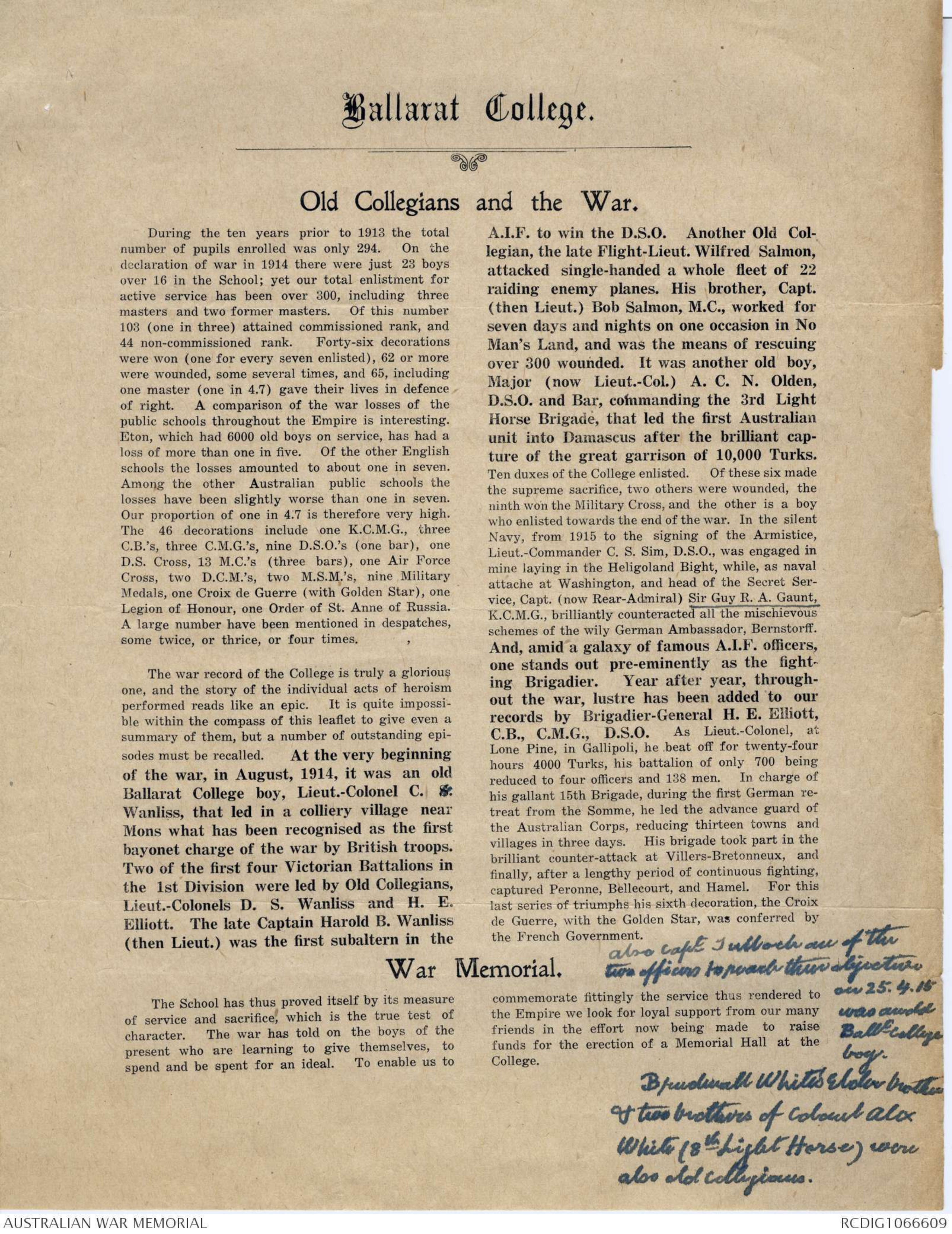
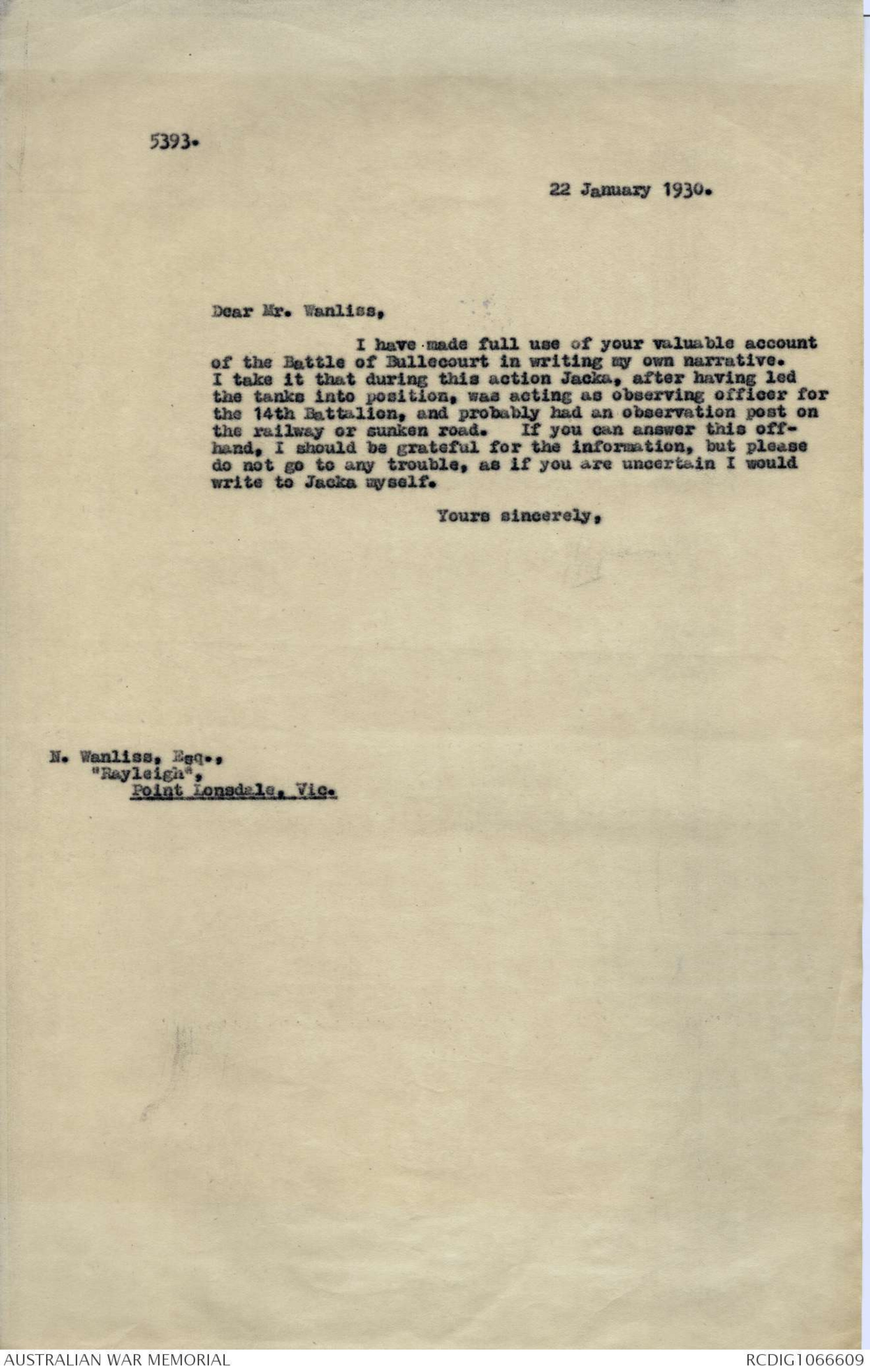
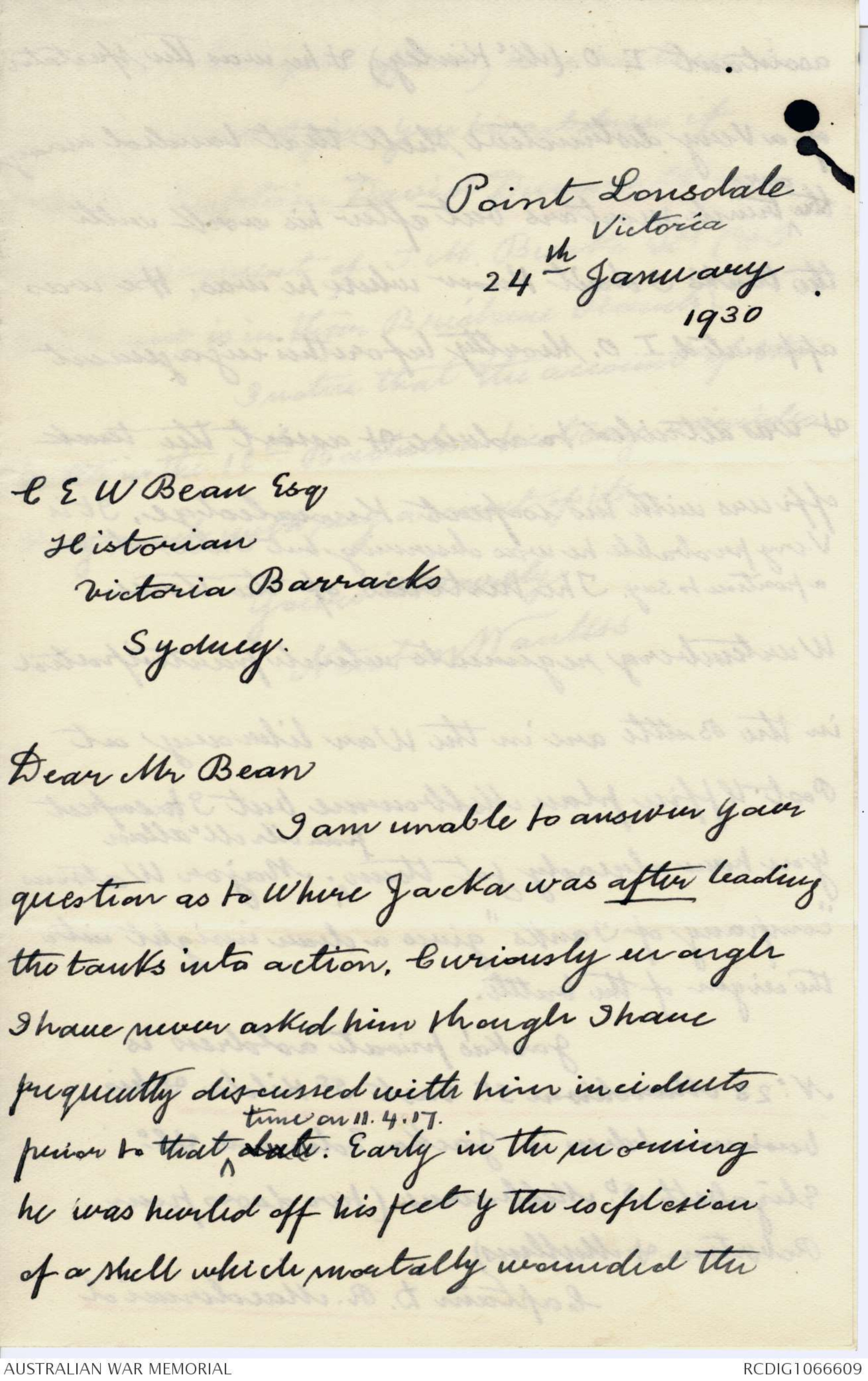
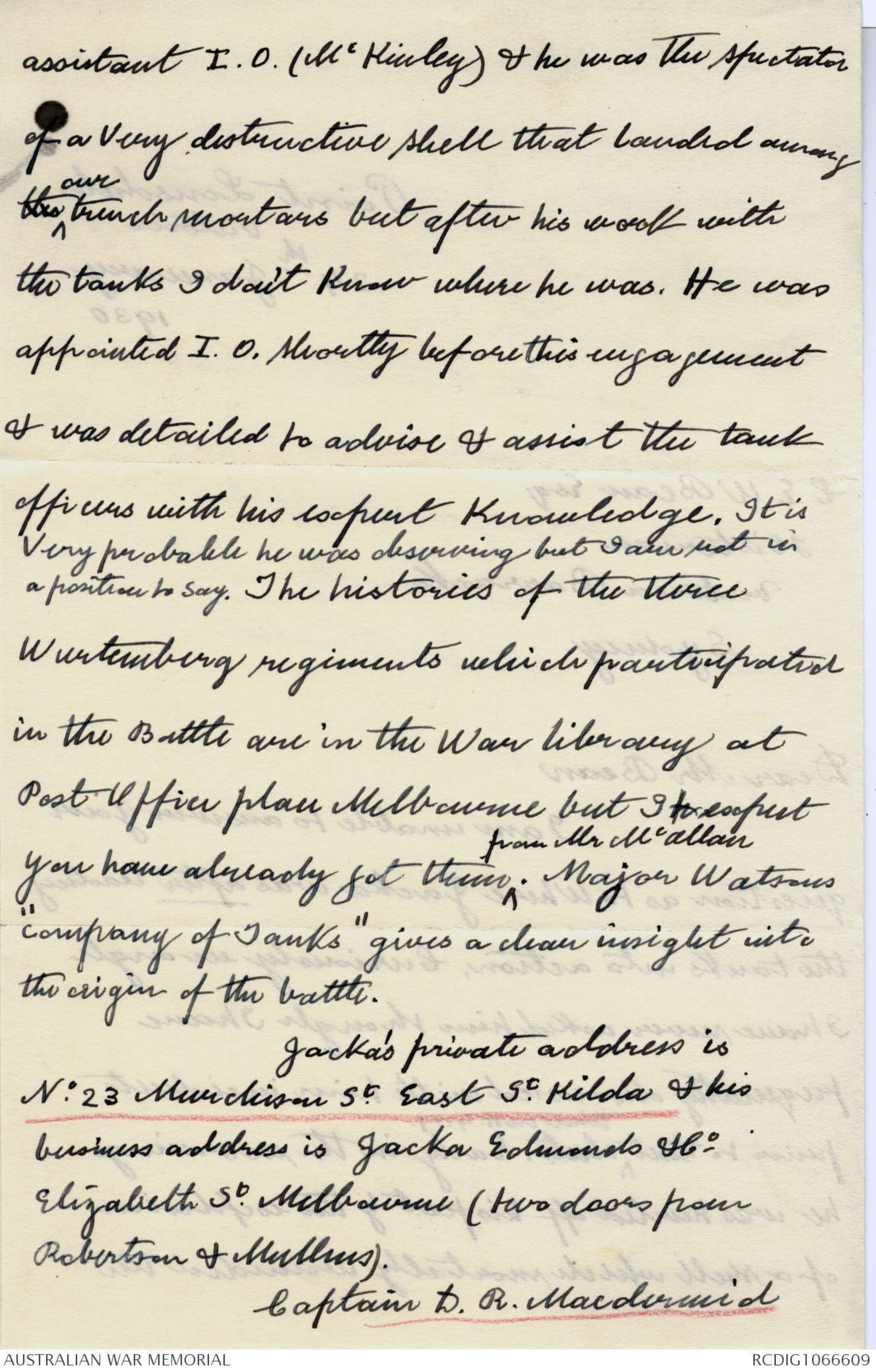
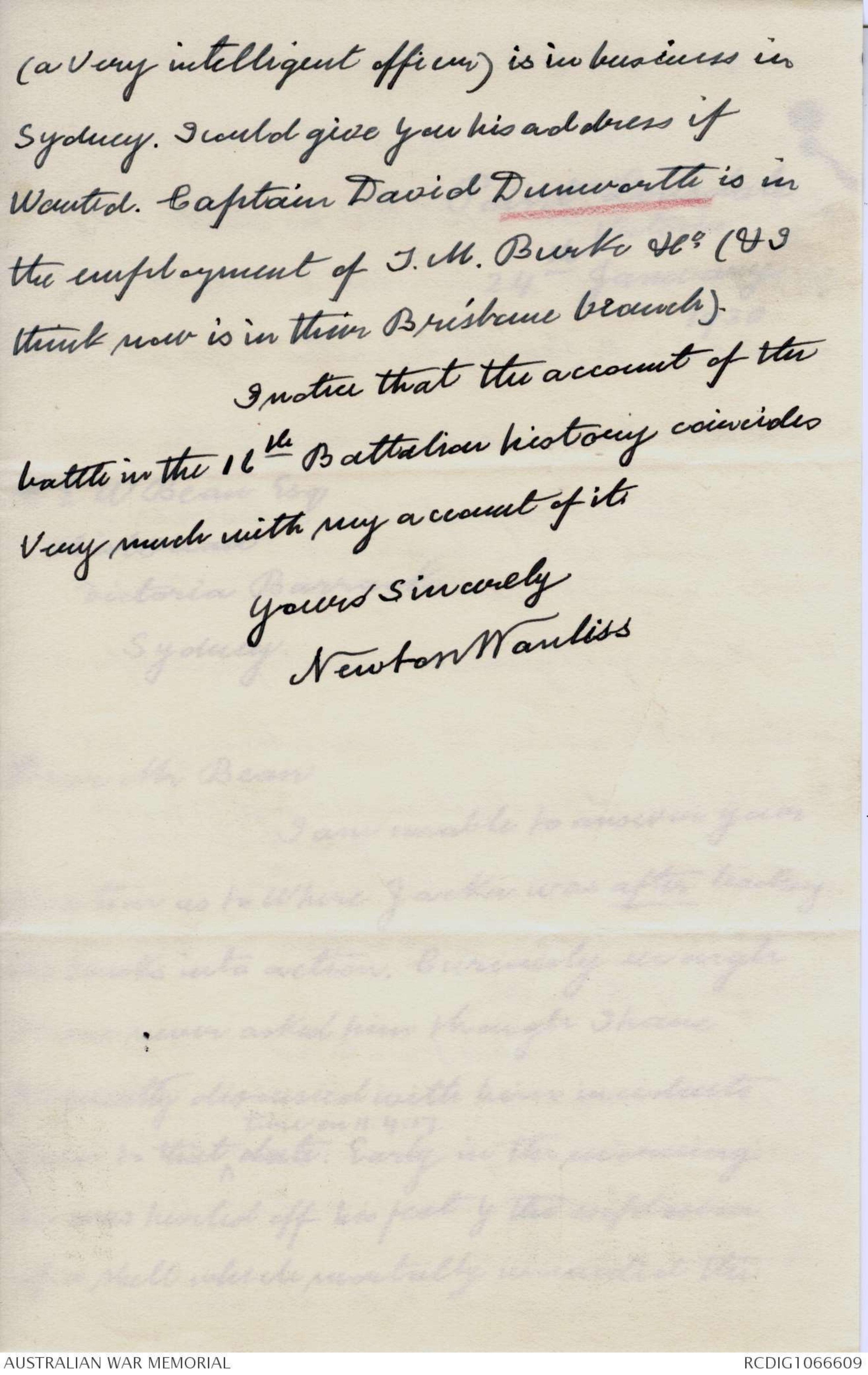
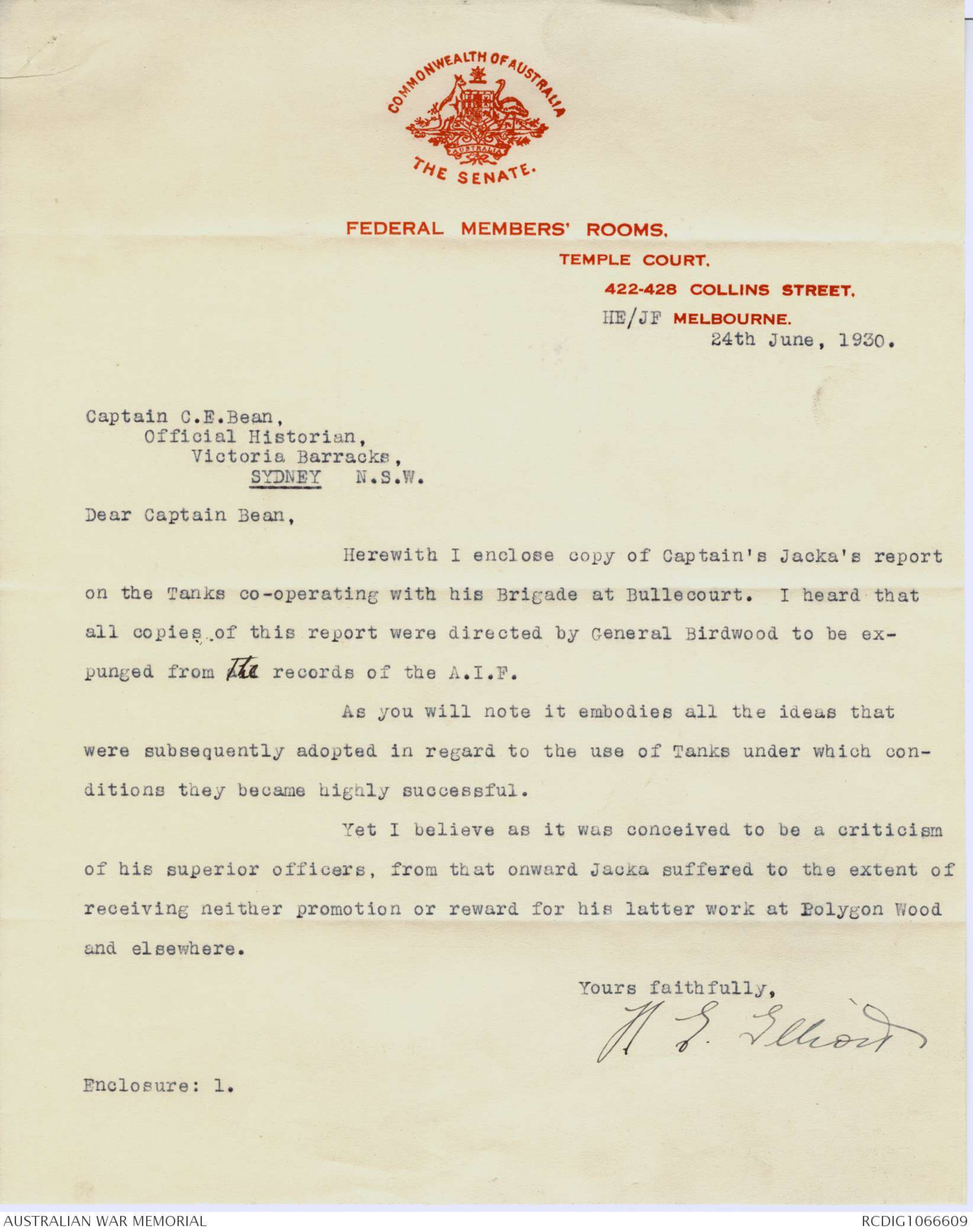
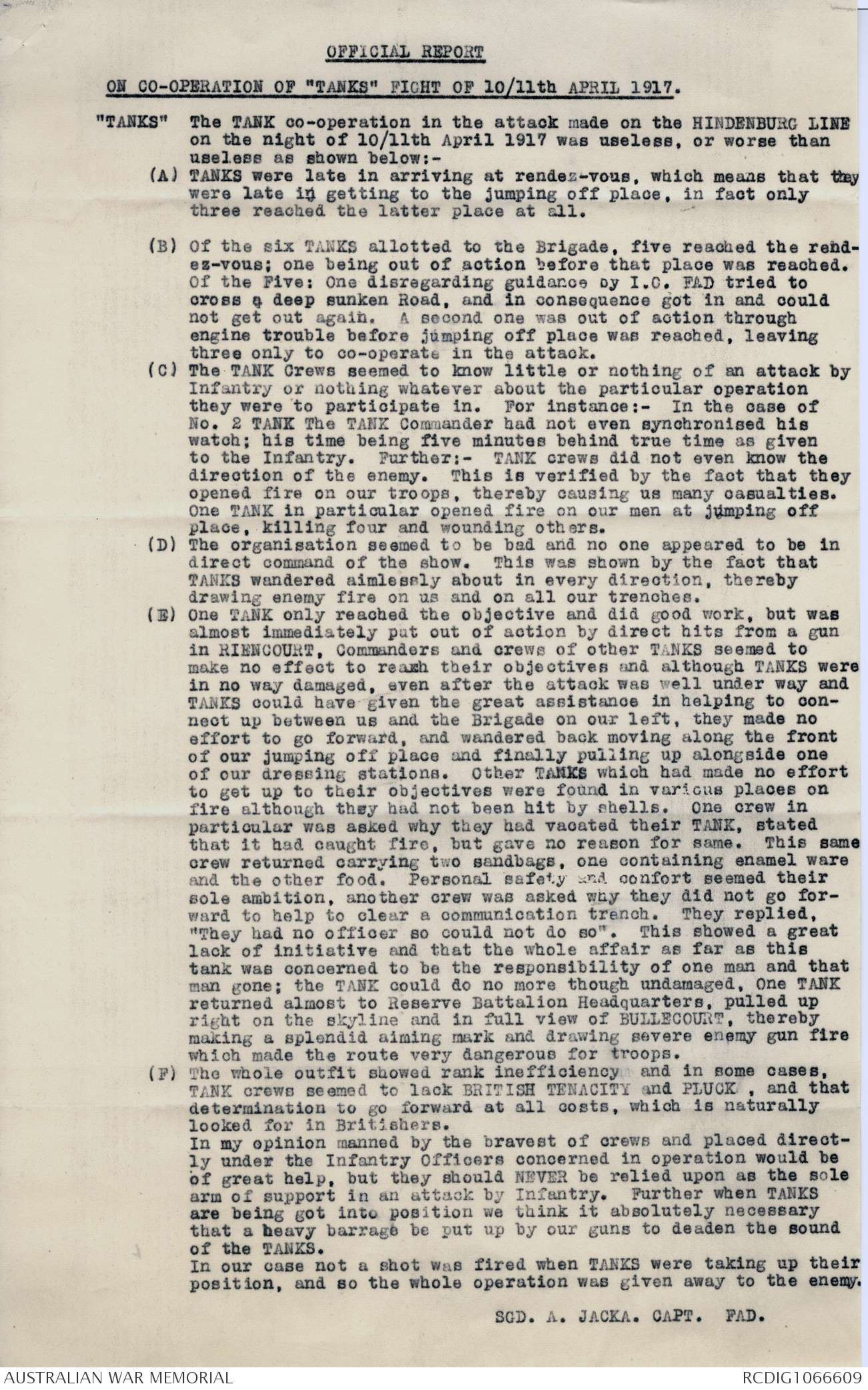
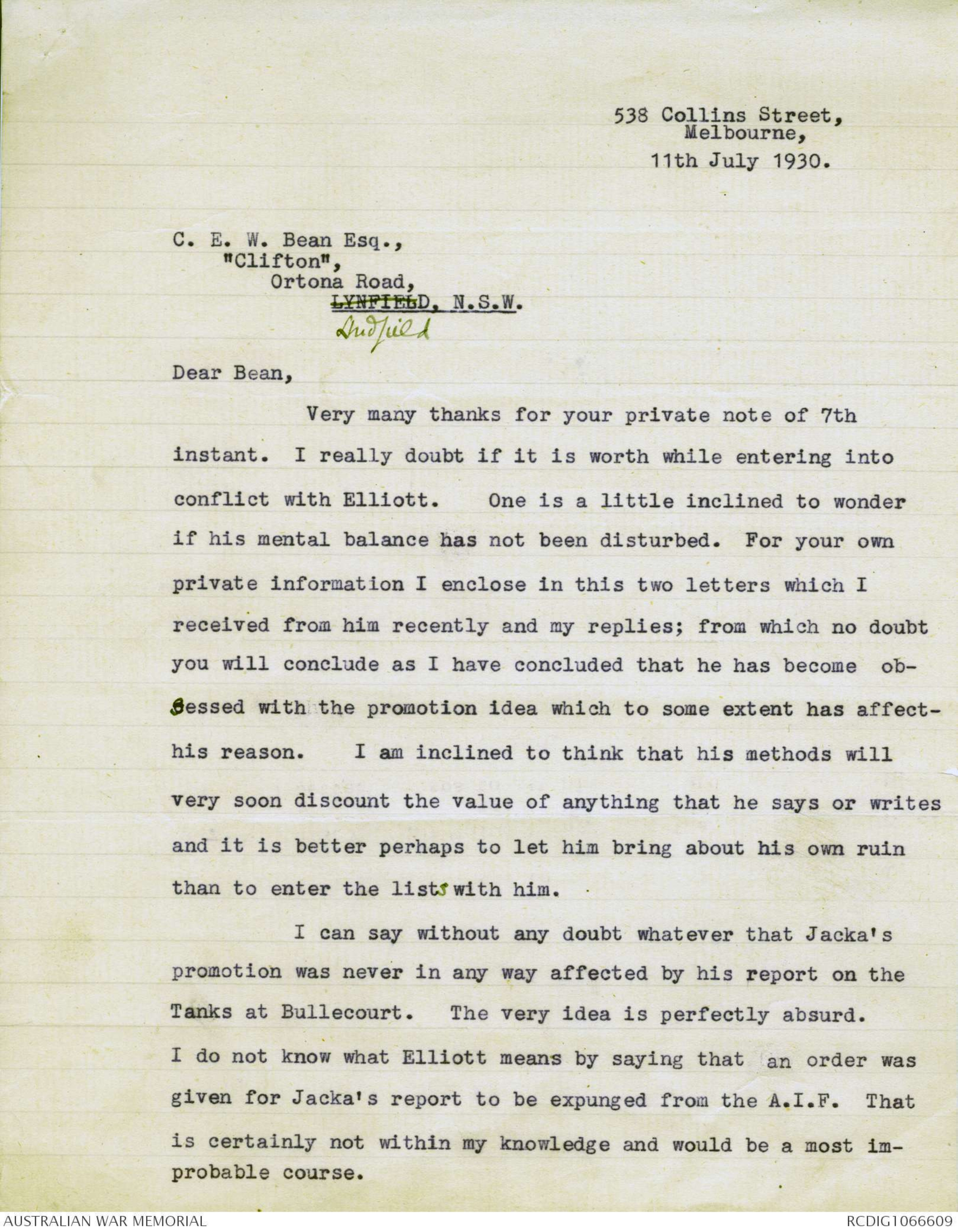
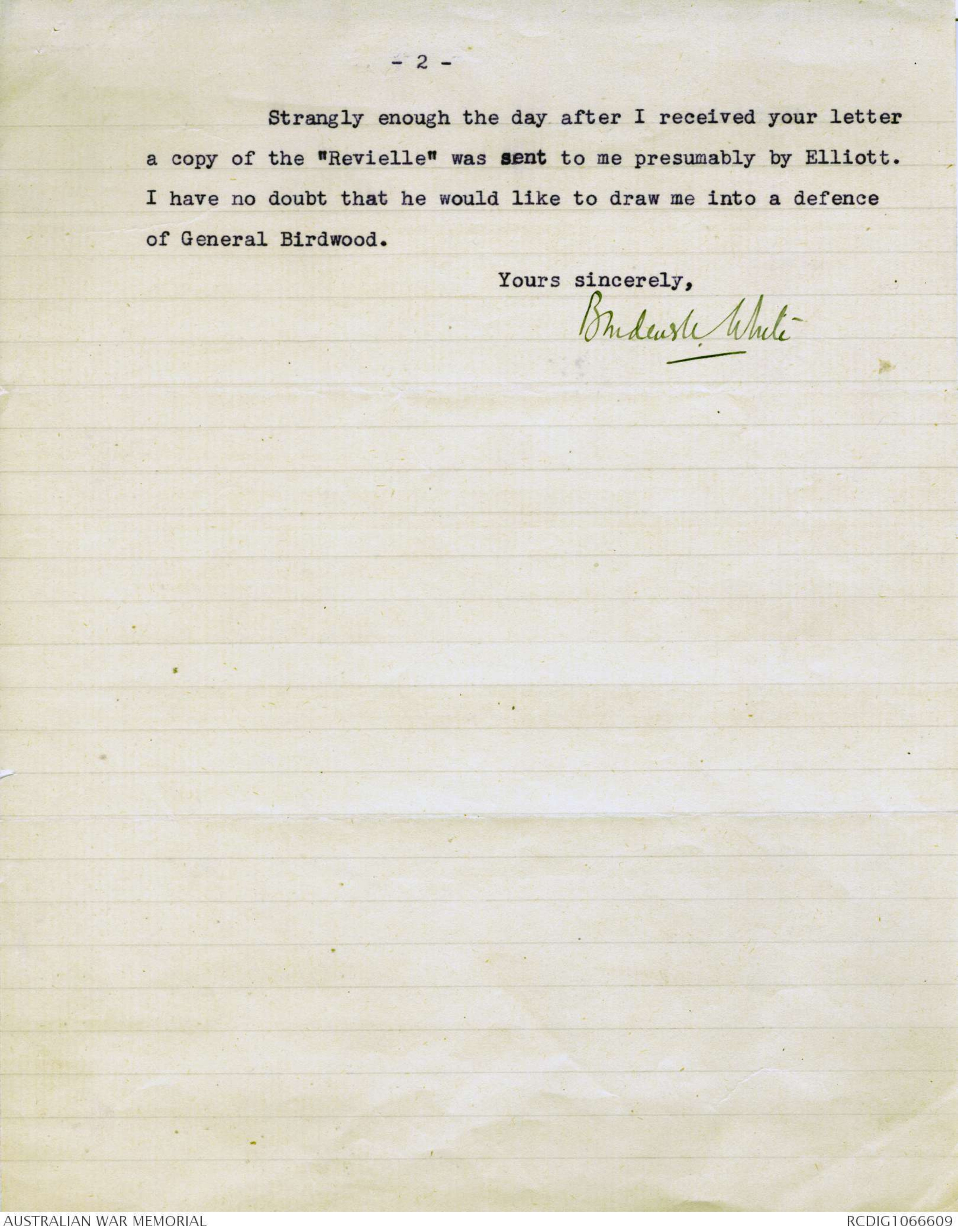
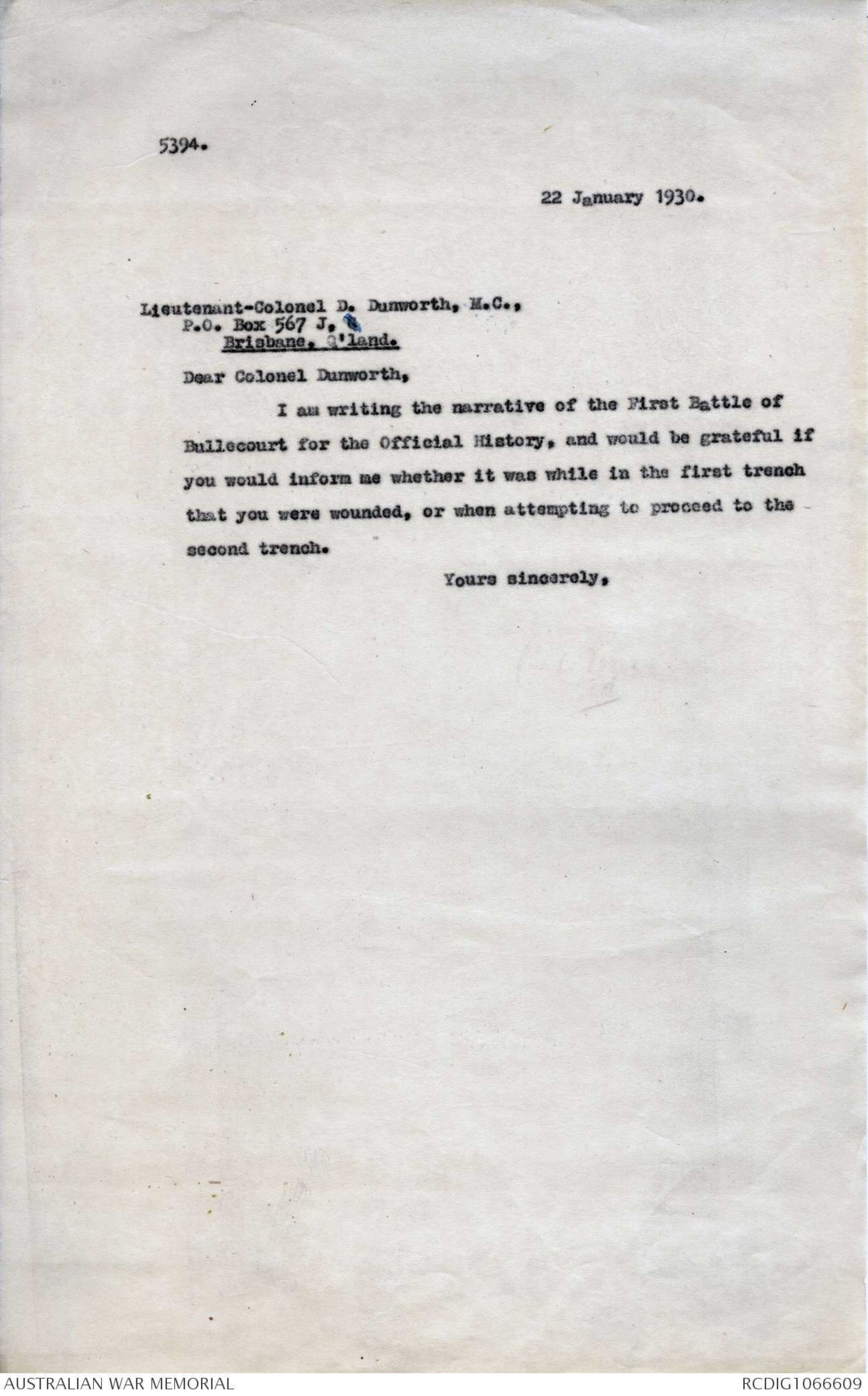
Ballarat College.
Old Collegians and the War.
During the ten years prior to 1913 the total
number of pupils enrolled was only 294. On the
declaration of war in 1914 there were just 23 boys
over 16 in the School; yet our total enlistment for
active service has been over 300, including three
masters and two former masters. Of this number
103 (one in three) attained commissioned rank, and
44 non-commissioned rank. Forty-six decorations
were won (one for every seven enlisted), 62 or more
were wounded, some several times, and 65, including
one master (one in 4.7) gave their lives in defence
of right. A comparison of the war losses of the
public schools throughout the Empire is interesting
Eton, which had 6000 old boys on service, has had a
loss of more than one in five. Of the other English
schools the losses amounted to about one in seven.
Among the other Australian public schools the
losses have been slightly worse than one in seven
Our proportion of one in 4.7 is therefore very high.
The 46 decorations include one K.C.M.G., three
C.B.s, three C.M.G.'s, nine D.S.O.'s (one bar), one
D.S. Cross, 13 M.C.'s (three bars), one Air Force
Cross, two D.C.M.'s, two M.S.M.'s, nine Military
Medals, one Croix de Guerre (with Golden Star), one
Legion of Honour, one Order of St. Anne of Russia.
A large number have been mentioned in despatches,
some twice, or thrice, or four times.
The war record of the College is truly a glorious
one, and the story of the individual acts of heroism
performed reads like an epic. It is quite impossible
within the compass of this leafet to give even a
summary of them, but a number of outstanding
episodes must be recalled. At the very beginning
of the war, in August, 1914, it was an old
Ballarat College boy, Lieut.-Colonel C. S.
Wanliss, that led in a colliery village near
Mons what has been recognised as the first
bayonet charge of the war by British troops.
Two of the first four Victorian Battalions in
the 1st Division were led by Old Collegians,
Lieut.-Colonels D. S. Wanliss and H. E.
Elliott. The late Captain Harold B. Wanliss
(then Lieut.) was the first subaltern in the
A.I.F. to win the D.S.O. Another Old
Collegian, the late Flight-Lieut. Wilfred Salmon,
attacked single-handed a whole fleet of 22
raiding enemy planes. His brother, Capt.
(then Lieut.) Bob Salmon, M.C., worked for
seven days and nights on one occasion in No
Man's Land, and was the means of rescuing
over 300 wounded. It was another old boy,
Major (now Lieut.-Col.) A. C. N. Olden,
D.S.O. and Bar, commanding the 3rd Light
Horse Brigade, that led the first Australian
unit into Damascus after the brilliant capture
of the great garrison of 10,000 Turks.
Ten duxes of the College enlisted. Of these six made
the supreme sacrifice, two others were wounded, the
ninth won the Military Cross, and the other is a boy
who enlisted towards the end of the war. In the silent
Navy, from 1915 to the signing of the Armistice
Lieut.-Commander C. S. Sim, D.S.O., was engaged in
mine laying in the Heligoland Bight, while, as naval
attache at Washington, and head of the Secret Service,
Capt. (now Rear-Admiral) Sir Guy R. A. Gaunt
K.C.M.G., brilliantly counteracted all the mischievous
schemes of the wily German Ambassador, Bernstorff.
And, amid a galaxy of famous A.I.F. officers,
one stands out pre-eminently as the fighting
Brigadier. Year after year, through
out the war, lustre has been added to our
records by Brigadier-General H. E. Elliott,
C.B., C.M.G., D.S.O. As Lieut.-Colonel, at
Lone Pine, in Gallipoli, he beat off for twenty-four
hours 4000 Turks, his battalion of only 700 being
reduced to four officers and 138 men. In charge of
his gallant 15th Brigade, during the first German
retreat from the Somme, he led the advance guard of
the Australian Corps, reducing thirteen towns and
villages in three days. His brigade took part in the
brilliant counter-attack at Villers-Bretonneux, and
finally, after a lengthy period of continuous fighting,
captured Peronne, Bellecourt, and Hamel. For this
last series of triumphs his sixth decoration, the Croix
de Guerre, with the Golden Star, was conferred by
the French Government.
[*also Capt Tulloch one of the
two officers to reach their objective
on 25.4.16
was an old
Ballt college
boy.
Brudenell White's elder brother
& two brothers of Colonel Alex
White (8th Light Horse) were
also old collegians.*]
War Memorial.
The School has thus proved itself by its measure
of service and sacrifice, which is the true test of
character. The war has told on the boys of the
present who are learning to give themselves, to
spend and be spent for an ideal. To enable us to
commemorate fittingly the service thus rendered to
the Empire we look for loyal support from our many
friends in the effort now being made to raise
funds for the erection of a Memorial Hall at the
College.
5393.
22 January 1930.
Dear Mr. Wanliss,
I have made full use of your valuable account
of the Battle of Bullecourt in writing my own narrative.
I take it that during this action Jacka, after having led
the tanks into position, was acting as observing officer for
the 14th Battalion, and probably had an observation post on
the railway or sunken road. If you can answer this off-hand,
I should be grateful for the information, but please
do not go to any trouble, as if you are uncertain I would
write to Jacka myself.
Yours sincerely,
N. Wanliss, Esq.,
"Rayleigh",
Point Lonsdale. Vic.
Point Lonsdale
Victoria
24th January
1930
C E W Bean Esq
Historian
Victoria Barracks
Sydney.
Dear Mr Bean
I am unable to answer your
question as to where Jacka was after leading
the tanks into action. Curiously enough
I have never asked him though I have
frequently discussed with him incidents
prior to that date ^time on 11.4.17. Early in the morning
he was hurled off his feet by the explosion
of a shell which mortally wounded the
assistant I.O. (McKinley) & he was the spectator
of a very destructive shell that landed amongthe ^our trench mortars but after his work with
the tanks I don't know where he was. He was
appointed I.O. shortly before this engagement
& was detailed to advise & assist the tank
officers with his expert knowledge. It is
Very probable he was observing but I am not in
a position to say. The histories of the three
Wurtemberg regiments which participated
in the Battle are in the War library at
Post Office place Melbourne but I h expect
you have already got them ^from Mr McAllan Major Watsons
"company of Tanks" gives a clear insight into
the origin of the battle.
Jacka's private address is
No 23 Murchison St East St Kilda & his
business address is Jacka Edmonds & Co.
Elizabeth St. Melbourne (two doors from
Robertson & Mullins).
Captain D. R. Macdermid
(a very intelligent officer) is in business in
Sydney. I would give you his address if
wanted. Captain David Dunworth is in
the employment of T.M. Burke &c (& I
think now is in their Brisbane branch)
I notice that the account of the
battle in the 16th Battalion history coincides
very much with my account of it.
yours sincerely
Newton Wanliss
COMMONWEALTH OF AUSTRALIA
THE SENATE.
FEDERAL MEMBERS' ROOMS,
TEMPLE COURT,
422-428 COLLINS STREET,
HE/JF MELBOURNE.
24th June, 1930.
Captain C.E. Bean
Official Historian
Victoria Barracks
SYDNEY N.S.W.
Dear Captain Bean,
Herewith I enclose copy of Captain’s Jacka’s report
on the Tanks co-operating with his Brigade at Bullecourt. I heard that
all copies of this report were directed by General Birdwood to be
expunged from all the records of the A.I.F.
As you will note it embodies all the ideas that
were subsequently adopted in regard to the use of Tanks under which
conditions they became highly successful.
Yet I believe as it was conceived to be a criticism
of his superior officers, from that onward Jacka suffered to the extent of
receiving neither promotion or reward for his latter work at Polygon Wood
and elsewhere.
Yours faithfully,
H.E. Elliot
Enclosure: 1.
OFFICIAL REPORT
ON CO-OPERATION OF "TANKS" FIGHT OF 1O/11th APRIL 1917.
"TANKS"
The TANK co-operation in the attack made on the HINDENBURG LINE
on the night of 10/11th April 1917 was useless, or worse than
useless as shown below:-
(A) TANKS were late in arriving at rendez-vous, which means that they
were late in getting to the jumping off place, in fact only
three reached the latter place at all.
(B) Of the six TANKS allotted to the Brigade, five reached the rendez-vous;
one being out of action before that place was reached.
Of the Five: One disregarding guidance by I. O. FAD tried to
cross & deep sunken Road, and in consequence got in and could
not get out again. A second one was out of action through
engine trouble before jumping off place was reached, leaving
three only to co-operate in the attack.
(C) The TANK Crews seemed to know little or nothing of an attack by
Infantry or nothing whatever about the particular operation
they were to participate in. For instance:- In the case of
No. 2 TANK The TANK Commander had not even synchronised his
watch; his time being five minutes behind true time as given
to the Infantry. Further:- TANK crews did not even know the
direction of the enemy. This is verified by the fact that they
opened fire on our troops, thereby causing us many casualties.
One TANK in particular opened fire on our men at jumping off
place, killing four and wounding others.
(D) The organisation seemed to be bad and no one appeared to be in
direct command of the show. This was shown by the fact that
TANKS wandered aimlessly about in every direction, thereby
drawing enemy fire on us and on all our trenches.
(E) One TANK only reached the objective and did good work, but was
almost immediately put out of action by direct hits from a gun
In RIENCOURT. Commanders and crews of other TANKS seemed to
make no effect to reach their objectives and although TANKS were
in no way damaged, even after the attack was well under way and
TANKS could have given the great assistance in helping to connect
up between us and the Brigade on our left, they made no
effort to go forward, and wandered back moving along the front
of our jumping off place and finally pulling up alongside one
of our dressing stations. Other TANKS which had made no effort
to get up to their objectives were found in various places on
fire although they had not been hit by shells. One crew in
particular was asked why they had vacated their TANK, stated
that it had caught fire, but gave no reason for same. This same
crew returned carrying two sandbags, one containing enamel ware
and the other food. Personal safety and confort seemed their
sole ambition, another crew was asked why they did not go forward
to help to clear a communication trench. They replied,
"They had no officer so could not do so". This showed a great
lack of initiative and that the whole affair as far as this
tank was concerned to be the responsibility of one man and that
man gone; the TANK could do no more though undamaged, One TANK
returned almost to Reserve Battalion Headquarters, pulled up
right on the skyline and in full view of BULLECOURT, thereby
making a splendid aiming mark and drawing severe enemy gun fire
which made the route very dangerous for troops.
(F) The whole outfit showed rank inefficiency: and in some cases,
TANK crews seemed to lack BRITISH TENACITY and PLUCK, and that
determination to go forward at all costs, which is naturally
looked for in Britishers.
In my opinion manned by the bravest of crews and placed directly
under the Infantry Officers concerned in operation would be
of great help, but they should NEVER be relied upon as the sole
arm of support in an attack by Infantry. Further when TANKS
are being got into position we think it absolutely necessary
that a heavy barrage be put up by our guns to deaden the sound
of the TANKS.
In our case not a shot was fired when TANKS were taking up their
position, and so the whole operation was given away to the enemy
SGD. A. JACKA. CAPT. FAD.
538 Collins Street,
Melbourne,
11th July 1930.
C. E. W. Bean Esq.,
"Clifton"
Ortona Road,LYNFIELD, N.S.W.
Lindfield
Dear Bean,
Very many thanks for your private note of 7th
instant. I really doubt if it is worth while entering into
conflict with Elliott. One is a little inclined to wonder
if his mental balance has not been disturbed. For your own
private information I enclose in this two letters which I
received from him recently and my replies; from which no doubt
you will conclude as I have concluded that he has become
obsessed with the promotion idea which to some extent has affect-
his reason. I am inclined to think that his methods will
very soon discount the value of anything that he says or writes
and it is better perhaps to let him bring about his own ruin
than to enter the lists with him.
I can say without any doubt whatever that Jacka's
promotion was never in any way affected by his report on the
Tanks at Bullecourt. The very idea is perfectly absurd.
I do not know what Elliott means by saying that an order was
given for Jacka’s report to be expunged from the A.I.F. That
is certainly not within my knowledge and would be a most improbable
course.
-2-
Strangly enough the day after I received your letter
a copy of the "Revielle" was sent to me presumably by Elliott.
I have no doubt that he would like to draw me into a defence
of General Birdwood.
Yours sincerely,
Brudenell White
5394.
22 January 1930.
Lieutenant-Colonel D. Duworth, M.C.,
P.O. Box 567 J,
Brisbane. Q'land.
Dear Colonel Dunworth,
I am writing the narrative of the First Battle of
Bullecourt for the Official History, and would be grateful if
you would inform me whether it was while in the first trench
that you were wounded, or when attempting to proceed to the
second trench.
Yours sincerely,
 Deb Parkinson
Deb ParkinsonThis transcription item is now locked to you for editing. To release the lock either Save your changes or Cancel.
This lock will be automatically released after 60 minutes of inactivity.